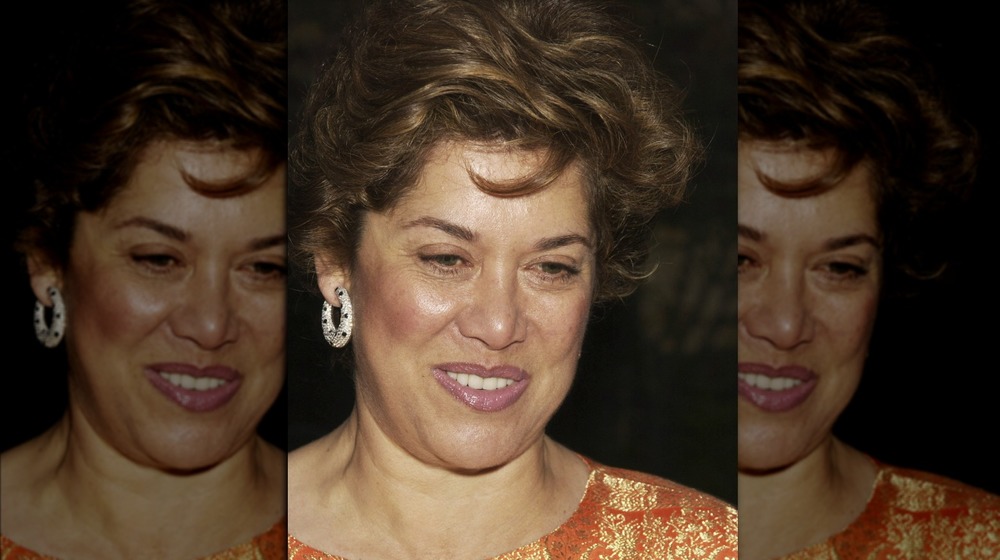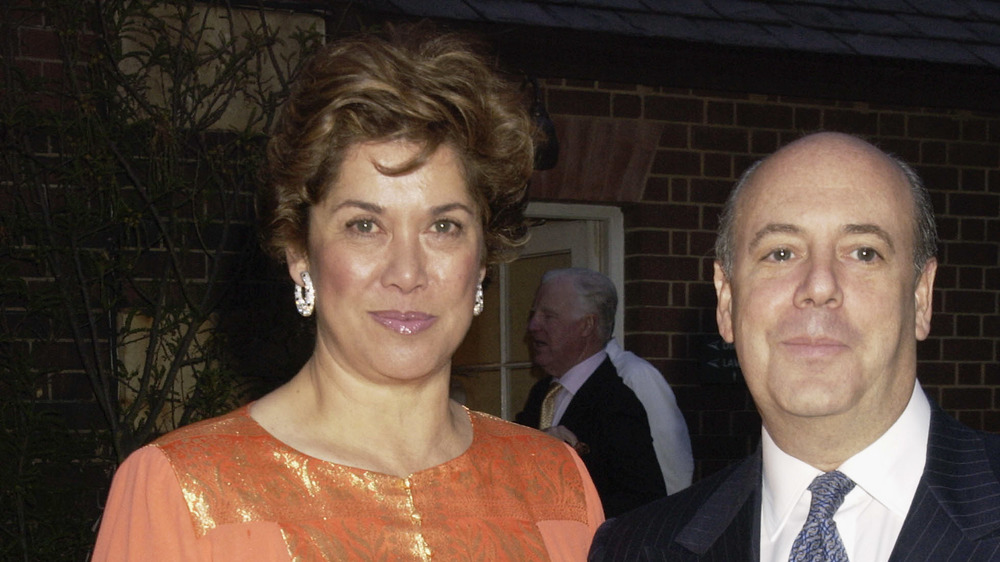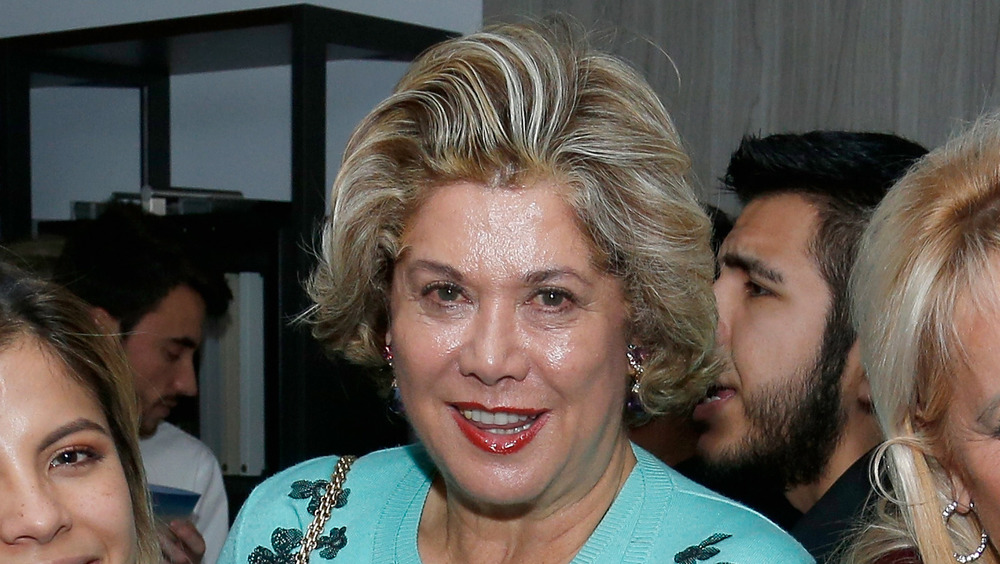The Way Billionaire Patricia Kluge Lost Everything
Billionaire Patricia Kluge took her 1990 divorce to the bank, but like other billionaires who lost their entire fortunes, it wouldn't last. Born in Iraq to an English father and an Iraqi/Scottish mother, Kluge, née Rose, moved to England when she was 16 and came of age during the free love scene of the 1960s. According to The Daily Beast, she met her first husband, Russell Gay, while working as a belly dancer in a nightclub. Gay published a sleazy tabloid called Knave, and his new wife began appearing nude in it. She also wrote a column in which she offered reader sassy sex advice. Touting her good looks as a young woman to The Telegraph, Kluge called her decision to pose nude in Gay's magazine "a no-brainer."
But neither it nor the marriage lasted, and she later moved to New York City, where she met the man that would make her a billionaire. John Kluge was 35 years older than her and the chairman of a company named Metromedia, which he sold to for $4 billion to media mogul Rupert Murdoch, who would turn it into the monstrosity that is the Fox TV network. When John and Patricia divorced, he was one of the richest men in America. The $1 billion she got in the breakup was the largest divorce settlement ever at the time. But, as happens with billionaire divorcées, like Jocelyn Wildenstein, Patricia soon learned the hard way that it wouldn't last forever.
Even as a billionaire, Patricia Kluge couldn't make a winery work
After the divorce, Kluge established a 23,500-square-foot, 45-room estate in Charlottesville, Virginia called Albemarle in 1999. She and her third husband William Moses, a former executive at IBM, held elaborate dinners and events that some felt were trying too hard. "It's really ridiculous and very pretentious," said Marie Ridder, an environmentalist who attended several such events. "There were these grand busts of people everywhere, and even a private chapel. It was imitation British grandeur without the history to go with it."
To go along with the grandiose idea she had of herself, Kluge founded a winery on the property and spared no expense in appearing to be a high-class vintner. She paid millions for wine masters from France. She imported expensive oak barrels to store the wine. She had the boxes it sold in designed specially by some relative of the British royal family you've never heard of. Then she charged $75 a bottle. And although they enjoyed moderate success, it wasn't enough to carry it through the excessive spending and economic downturn of the Great Recession. She and Moses tried selling Albemarle for $100 million in 2009, but that price was ultimately reduced to a measly $24 million. They even tried auctioning off all their silly rich people stuff — ruby rings, fox hunting guns, silver Faberge plates, etc. — but they only fetched around $15 million, not enough to save their hides.
Donald Trump bailed out the former billionaire Patricia Kluge
Even after selling all her stuff, Kluge wasn't able to keep the winery afloat or stave off bankruptcy. Several banks foreclosed on her estate in 2016 and Bank of America sued her for defaulting on $23 million worth of loans. So she went to a friend — the future and, as of 2021, former president Donald Trump — in search of help. He bought the winery from her and allowed her to stay on as an employee. "My worst nightmare and personal Armageddon are finally over," she told The Daily Beast after the sale. "I'm thrilled beyond belief." Despite having failed as a winery owner, she said that the Kluge Estate Winery had been "monumentally relevant to the world of wine," and that with Trump's help, it would be "coming back with a vengeance." But that dream didn't last long, either. Trump fired her a year later.
But don't count Kluge out just yet. As The New York Times reported in 2017, she ended up with $2.6 million after the bankruptcy (that's broke by billionaire standards), and was back in business trying her hand in the high-end jewelry market. She said that her grandfather taught her to keep on trying, even in the face of adversity. "I can turn around as quick as a polo pony. People ask me all the time how I go on... I was taught that if you can't fix it, move on. You don't whine and hang on."


